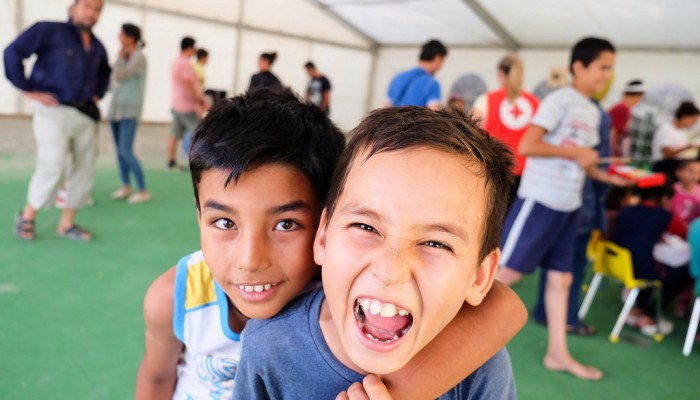Vital Volunteers and Australian Resettlement
Integration is one of the hot topics in the debate around durable solutions for refugees, particularly in resettlement. With forced displacement at an unprecedented level since World War II, protection responses for the around 68 million displaced people, particularly for the 25.4 million refugees, are required. Despite discussions between policy makers, academics, refugee advocates and the international refugee regime, the traditional three so-called durable solutions (repatriation, local integration and resettlement) as outlined in the 1951 Convention are still the standard. Despite Australia’s less than stellar international record on how it is dealing with boat arrivals, it is considered one of the largest providers of successful formal resettlement programs.
But what makes a resettlement program successful? The aim of resettlement programs is to provide refugees with a new home. Therefore, a key indicator for successful resettlement must be that refugees are settled among their own ethnic community but also consider themselves also as members of the wider Australian society.
This wider Australian society must also recognize the refugee as a member in return.
Once this full integration is achieved, refugee and host society can benefit equally from resettlement: The refugee has a safe new country to call home and the host society can benefit from a new citizen who is a productive member of society paying taxes and becoming part of Australia’s multi-cultural fabric.
If this is how integration is defined, then how is achieved? This is perhaps the more difficult question to answer as it is hard to measure all aspects of successful integration. There are tools like Ager and Strang’s Indicators of Integration but even these comprehensive tools cannot measure all aspects. Indeed, there are so many factors that make for successful integration, some are organisational while others are entirely human. Key here, and perhaps not yet thoroughly researched (or understood) is the role of volunteers in the process of the successful integration of refugees. And this is the question my PhD thesis tries to answer by exploring who the volunteers are, what motivates them, what they contribute and how this is received.
We know that volunteers are an essential element of any (re)settlement process in almost all areas: education, health, employment, housing, social networks. They teach English, accompany refugees to doctor appointments, translate Centrelink letters, organise social events and find housing; just to name a few contributions. In addition to these very functional support tasks, volunteers also bring soft skills by helping refugees to connect on a fundamental human level. Some might call it compassion, while others might see it as essentially facilitating a sense of belonging for recently arrived refugees.
Their contribution is thus also a gesture of welcome, especially when the volunteer is from the host and not diaspora community. Perhaps these much harder to measure, and more subtle benefits volunteers bring to the resettlement process are equally (if not even perhaps more) important than assistance with logistics, as they can strengthen social capital and connections between communities.
Being ‘truly’ welcomed goes a long way to foster a desire to move beyond wishing for a safe haven, but to become part of a new society and truly find a new home.
It might come as a surprise that despite this crucial role volunteers play to ensure the success of Australia’s resettlement program, they have so far received little attention from academic researchers. I aim to contribute to this research gap in Australia with my PhD research by conducting semi-structured interviews with service providers, volunteers and refugees in Australia. Interview questions will explore more directly who the volunteers are, what they exactly do and most importantly why. At the same time, I will be looking at the impact their work has on refugee settlement and integration as well as challenges and opportunities.
Why does this research matter? Firstly, I would argue it contributes to an improved understanding about the role of volunteers in resettlement, making visible their hidden contribution to successful integration. They work without remuneration in a difficult legal environment, so they deserve to be acknowledged and receive credit for what they do. Secondly, I hope such knowledge can also translate into better support structures for the unsung heroes of Australia’s successful formal resettlement program. Best practice examples but also negative experiences can be used to design or improve volunteer training programs and propose recommendations for volunteer coordination. Volunteering can be a great tool to enhance inclusion and social cohesion. The knowledge collected during my research will hopefully assist using this tool so that everyone can benefit.
